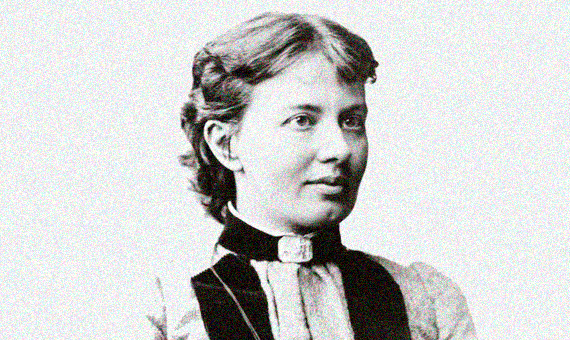The first woman in the world to hold a doctorate in mathematics: Sofia Kovalevskaya
Sofia Kovalevskaya (January 15, 1850- February 10, 1891) was one of the pioneers of women's rights in Tsarist Russia. She made important contributions to the theory of differential equations and was the first woman to hold a PhD in Mathematics, the first to be on the editorial board of a scientific journal, and the first professor.

Member of an important family of the Russian aristocracy, Kovalevskaia was born in 1850. She was raised by English nannies in an intellectual setting. She was introduced to mathematics at an early age. Her father used to decorate the walls of Sofia's bedroom with papers filled with mathematical formulas. Little Sofia learned all these formulas at a young age.
She discovered trigonometry for the second time without any training, thanks to books she borrowed from her neighbors. Kovalevskaya was seventeen years old with her family she moved to St. Petersburg. Despite her father's opposition, she began taking math lessons regularly. She could not go to university in Russia at that time because she was a woman.
She married a young scientist who was about to move to Germany so she could go to university. The young scientist is Vladimir Kovalevsky. Both began working in their respective fields of study at Heidelberg University. Kovalevskaya received a doctorate in mathematics from the University of Göttingen in 1874. For the first time in the world, a woman has a doctorate in mathematics. During this period, Kovalevskaya was no longer just a good mathematician, but a staunch advocate for women's rights in Europe.
While She was publishing her articles in mathematical journals, she was also writing literary works. She was in close contact with people like Fyodor Dostoyevsky, Anton Chekhov, and George Elliot.
She had fallen in love with her husband, whom she married in order to get out of Russia. They also had daughters. When their daughter was only five years old, Kovalevskaya's husband committed suicide due to unfortunate events. Now, young Sofia was a widow with a child.
Her achievements in mathematics made Kovalevskaya a lifelong professor at Stockholm University. This was another first for a woman in the world. She became the editor of a math magazine, she. It was the first time in the world that a woman was appointed to this position.
She was in contact with mathematicians such as the hermite and Chebyshev. She served as a bridge between Russian mathematicians and those of the Western world. She made important contributions to the 'fixed point theorem', which has also found an important application in the field of economics. She received the French Academy of Science Award for these contributions.
From an illness that began as a simple cold, Kovalevskaya died in 1891 at the age of forty-one.
